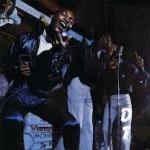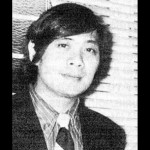At the crack of dawn on Labor Day earlier this week, thousands of Jamaicans embarked on their various chores, totally oblivious of the fact that one of the most iconic musical figures – Desmond Dekker, who labored incessantly to develop and internationalize Jamaica’s popular music – had passed away on that same date back in 2006.
Dekker, perhaps, had very few equals insofar as it relates to bringing Jamaica’s music to the attention of an international audience. He was the first to have created a real impact with the reggae recording Israelites (originally titled Poor Mi Israelite), even before Bob Marley’s forays of the early 1970’s for producer Chris Blackwell.
Millie Small, some five years before Dekker made his mark, had set the stage with the ska-oriented piece My Boy Lollipop. Although considered Jamaican, it was made in England and partly backed by English musicians. Israelites, however, was sheer home-grown Jamaican reggae that set in motion a Jamaican music form that led reggae into international waters.
HISTORY-MAKING TRACK
The recording of Israelites, performed by Dekker, Wilson James, and Easton Howard – as Desmond Dekker and the Aces – created history when it became the first Jamaican recording to occupy the No. 1 spot on the British charts, while climbing into the top 10 of the US charts. It did so in 1969. Its popularity on both sides of the Atlantic was the catapulting force that initially brought reggae music international recognition. But even before that, Dekker was already in the public domain, locally and in Britain with (007) Shanty Town – a 1967 James Bond movie-inspired song, which articulated the rude boy, street gang syndrome that engulfed Jamaica shortly after Independence. Its chilling lyrics tell the tale of the rude boy’s dominance:
007 at Ocean 11
And now rude boys a go wail
Cause them out of jail
Rude boys cannot fail
Dem a loot dem a shot dem a wail, a Shanty Town.
The recording actually presaged Dekker’s emergence as an internationally famous recording artist by becoming the first Jamaican-produced record to reach the Top 20 of the British charts.

Dekker was, in fact, born Desmond Dacres on July 16, 1942 (some records say 1941), grew up in Danvers Pen, St Thomas, and attended the Font Hill Primary School before moving to Kingston as a teenager, where he worked for some time as a welder.
Encouraged by friends, who observed his talent for singing, Dekker sought and secured an audition with Leslie Kong, one of the top record producers of the day. His first recording for the Chinese-Jamaican producer – the divinely inspired solo piece Honor Your Mother and Father in 1963, backed by the Drumbago All Stars – became a big hit all over Jamaica.

Conforming to the popular trend at the time that favored group singing, Dekker soon found himself in the company of his two friends, Wilson and Easton, and together they enjoyed enormous success in Jamaica, with a formidable run of more than a dozen top-10 hits that included Rude Boy Train, Sabotage, Mother Young Gal, Music Like Dirt, Unity, and Intensified Festival, the latter two being runner-up and winner, respectively, in the annual Festival Song competitions of 1967 and 1968.
Dekker moved to the UK in 1969, and as previously mentioned, it proved to be the year of his greatest international success. His run of hits continued in the UK at the turn of the decade with A It Mek, Pickney Gal, and others, along with his massive No. 2 hit – the Jimmy Cliff composition You Can Get It If You Really Want.

Until the arrival of Bob Marley and Jimmy Cliff, Dekker remained the most important and influential reggae artist on the international scene.



You must log in to post a comment.